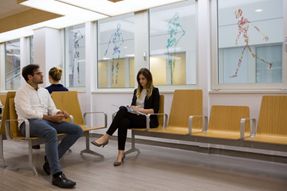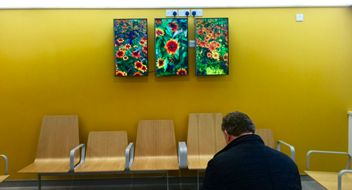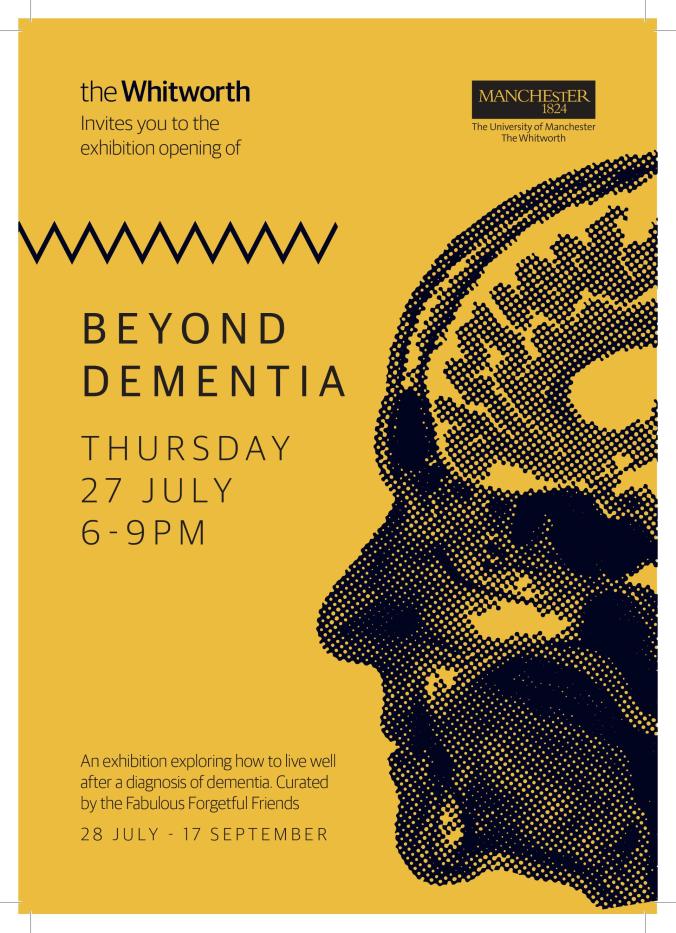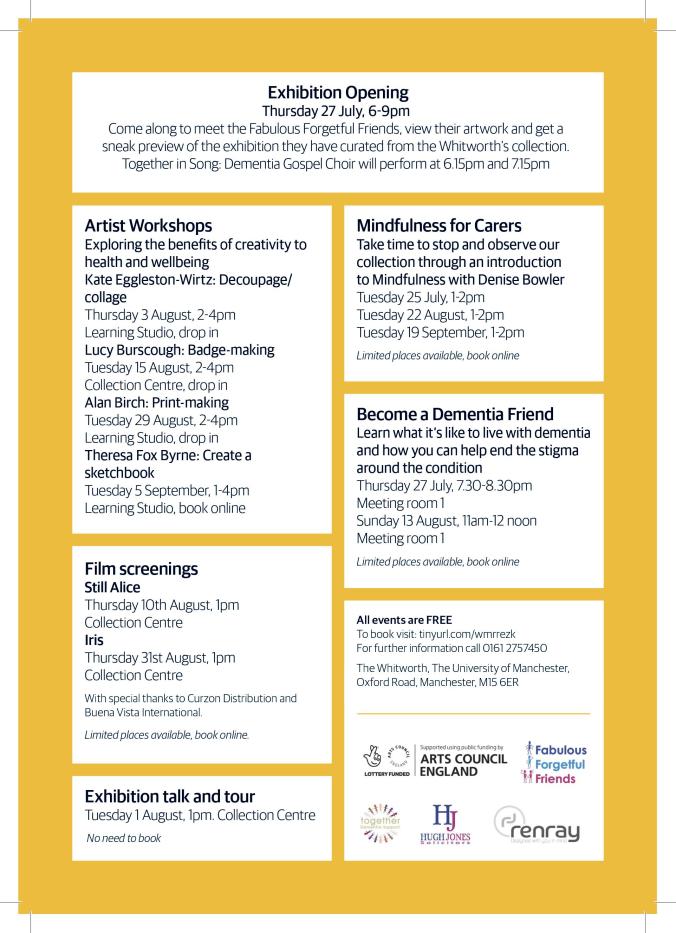I am a final year medical student at the University of Manchester, whilst also being a keen musician and composer. I have always been fascinated in the effects of music on both the body and the mind, which led me to pursue this project integrating music and healthcare. This project was part of the Medical Humanities MSc at The University of Manchester.
The Waiting Room
“Nobody thinks much about the waiting room, including those who sit and wait. But in fact, a waiting room often contains an amazing concentration of the full spectrum of human emotion, ranging from bone-numbing boredom to acute anxiety”[1]

Sitting in a medical waiting room is an accepted part of visiting a doctor. Waiting is an ingrained part of daily human life in the Western world. Whether this is waiting for public transport, waiting in traffic, waiting for the kettle to boil, waiting in a queue, or waiting for an appointment, it is ubiquitous in modern society. In terms of the medical waiting room, it is uncommon to attend a hospital or GP surgery without spending at least a few minutes waiting, often longer.
Medical waiting rooms are often uncomfortable, anxiety-filled spaces with little to stimulate or preoccupy patients’ minds other than medical posters littering the walls. The aim of my project, Music in the Waiting Room, was to fill this empty ‘space’ of the waiting room with music, with the intention of encouraging a calm and relaxing environment, positively distracting patients from their medical anxieties.
Anxiety has been associated with negative health outcomes, including slower recovery times, decreased pain thresholds and resistance to treatment.[2] In order to provide patient-centred care, one must consider the entire patient experience, not confining the care solely to the consultation room. Therefore, it is vital to consider the waiting room experience, and ways in which it can be optimised to encourage a relaxing and anxiety-relieving environment.
Research has provided evidence for the stress-relieving effects of music. Several studies have found that listening to music leads to reduced levels of the stress hormone ‘cortisol’, explaining the relaxing impact of ‘calming’ music.[3],[4] This project intended to use these stress-relieving effects of music to improve the patient experience of the waiting room.
The Project: Music in the Waiting Room
The project was part of my masters degree in Medical Humanities. I composed an album of music called ‘Music in the Waiting Room’. This included a selection of calming electronic ambient music and piano music. You can listen to this music by clicking on the links below:
 Research was performed during the composition process of the album to explore the type of music that the public generally found relaxing and would like to hear in a waiting room. The word cloud displays the described responses.
Research was performed during the composition process of the album to explore the type of music that the public generally found relaxing and would like to hear in a waiting room. The word cloud displays the described responses.
Upon further research, it emerged that people generally preferred piano music to electronically generated music, which assisted in guiding the composition.
Results: Chelsea and Westminster Hospital Study
 My album of music was installed in the fracture clinic waiting room at Chelsea and Westminster hospital, supported by the Arts charity Chelsea and Westminster Plus.
My album of music was installed in the fracture clinic waiting room at Chelsea and Westminster hospital, supported by the Arts charity Chelsea and Westminster Plus.
 The impact of the music was measured by evaluation questionnaires with patients in the waiting room. A total of 30 patients completed questionnaires
The impact of the music was measured by evaluation questionnaires with patients in the waiting room. A total of 30 patients completed questionnaires
Patients were asked: ‘What do you think to the music playing in the waiting room?’ Results were positive, with 96% stating that they either like it or don’t mind (see pie chart).
When questioned about how patients were feeling while sitting in the waiting room with music, all but one patient reported positive feelings. The most frequently reported feeling in the waiting room was ‘calm’, closely followed by ‘at ease’ and ‘relaxed’. These were the feelings that I was aiming to capture and enhance in the waiting room via the music.
Patients were then asked how strongly they agreed/disagreed with the following statement: ‘music in the waiting room creates a relaxing environment’. Results were overwhelmingly positive, with 87% of patients selecting ‘agree’ or ‘strongly agree’, suggesting that the majority find music relaxing in the waiting room.
 Finally, patients were asked to what extent they agreed with the following statement: ‘I like to have music in the background in a waiting room’. Again, results were positive, with 90% of patients choosing either ‘agree’ or ‘strongly agree’, and 10% were undecided. No patients voted for ‘disagree’ or ‘strongly disagree’, revealing that music was preferred by the majority of patients in this waiting room.
Finally, patients were asked to what extent they agreed with the following statement: ‘I like to have music in the background in a waiting room’. Again, results were positive, with 90% of patients choosing either ‘agree’ or ‘strongly agree’, and 10% were undecided. No patients voted for ‘disagree’ or ‘strongly disagree’, revealing that music was preferred by the majority of patients in this waiting room.
Written feedback from patients on their thoughts of the music in the waiting room are displayed below.
 Conclusions
Conclusions
Waiting rooms are not often considered pleasant places to be in, yet they are a key component of the overall patient experience. If we can help the way patients feel in the waiting room, we can have a positive impact on their overall experience. Patients can enter the consultation room feeling less stressed, with a clearer mind, ready to take in information from the healthcare professional.
Results from this study at Chelsea and Westminster hospital suggest that music in the waiting room does encourage a more relaxing, calming environment, hence providing a more positive patient healthcare experience.
I thoroughly enjoyed the entire experience of undertaking this project. It provided me with the opportunity to combine my two passions in life: music and medicine, whilst making a positive impact on the patient experience of healthcare.
References
[1] Ian Cameron, “What’s Happening In Your Waiting Room?”, Canadian Family Physician, 64 (2018): 378.
[2] Elaine Biddiss, Tara Joy Knibbe and Amy McPherson, “The Effectiveness Of Interventions Aimed At Reducing Anxiety In Health Care Waiting Spaces”, Anesthesia & Analgesia, 119 (2014): 433
[3] Alexandra Linnemann, Jana Strahler and Urs M. Nater, “Assessing The Effects Of Music Listening On Psychobiological Stress In Daily Life”, Journal Of Visualized Experiments, 120 (2017)
[4] Barbara Miluk-Kolasa et al., “Effects Of Music Treatment On Salivary Cortisol In Patients Exposed To Pre-Surgical Stress”, Experimental And Clinical Endocrinology & Diabetes, 102 (2009): 118.
Copyright for Text, Music and Images: Jessica Duckworth 2018
Find out more about Jess’s creative journey in her online journal






